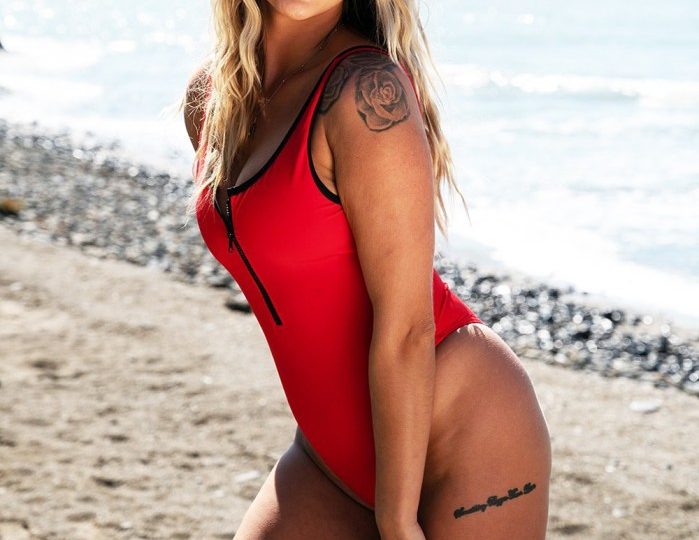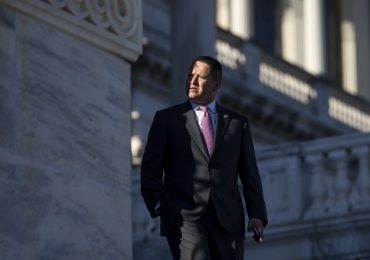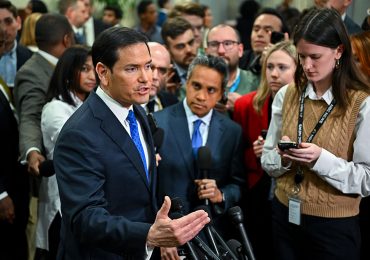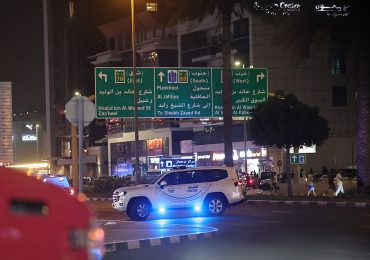POSING in the Dubai sunshine with a £130,000 Patek Philippe watch, Louis Vuitton handbag and designer clothes, Magdalena Sadlo appeared to live the perfect life.
But the lavish lifestyle of the Love Island star, 30, whose splurges surpassed the cost of an average three-bedroom house, was funded by a £53million cocaine ring.
Polsat / Love IslandLove Island star Magdalena Sadlo was found to have funded a lavish lifestyle from drug smuggling[/caption]
AFPExtreme methods are used to smuggle drugs including hiding 1.7kg of cocaine in breast implants, in Spain[/caption]
Exclusive PicturesOne Peruvian stashed 750g of cocaine in his artificial leg[/caption]
The beautiful blonde, who appeared on the Polish version of the ITV dating show in 2021, admitted to smuggling, conspiracy to supply Class As and money laundering last week.
Sadlo, of Bracknell, Berks, helped to transport the illegal substance between Dubai and London Heathrow and was collared by Operation Matrix cops in one of the UK’s biggest drugs busts.
Prosecutor Tim Evans described the foiled ring, which has led to nine men being sentenced to more than 106 years in prison, as “truly massive” and “Amazon-style drug-dealing”.
Sadlo is among an increasing number of people likely targetted due to their ability to blend in and bypass Border Force police, according to drugs mule Dr Jennifer Fleetwood.
The criminologist, who recently appeared on Wondery podcast British Scandal: The Peru Two, shines a light on the terrifying trade during an exclusive interview with The Sun.
She reveals the brutal backstabbing – including ratting out fellow crooks on purpose and tricks to fool people into unwittingly becoming mules – and why traffickers may be tempted to recruit bigger people or the elderly as more Brits are lured in.
Jennifer tells The Sun: “Drugs can be concealed in wigs, rugs, dreadlocks, frozen sharks, notebook pages and so on, there’s a massive range of ways and those who traffic will keep an eye on what’s getting busted.
“One guy told me he was able to access technologies where drugs, like cocaine, could be turned into plastic and that would then be fashioned to look like a windsurfer sail.
“That way you can cut it, you can pour water on it and it’s going to act like plastic… I’ve heard about it being processed as part of ceramics as well.
“The problem with is that you have no idea how much you’re carrying or what you are carrying, people think its cocaine when it could be heroine which carries a significantly higher sentence.
She was found to have been part of a ‘truly massive… Amazon-style’ operation
“One of my favourite examples was people smuggling cocaine as ink, like ink pellets. Border Force used something similar to a COVID test where a dipstick was put in to test the liquid.
“If it came up with a line then it meant there were drugs. But because they were concealing the cocaine in black ink the test wouldn’t work. In this world, there’s a kind of a cat and mouse game going on constantly.”
And it shows no signs of slowing down – with drugs being swallowed in bullet-shaped capsules and found hidden inside breast implants, prosthetics limbs, make-up and Christmas toys.
Cunning disguise
Jennifer, a Senior Lecturer in Criminology at the University of Greenwich, has interviewed people from all levels of the drug trafficking trade – from mules to recruiters and ‘bosses’.
ABF/AFPOne former drug mule said groups set-up people working for them to help others sneak through[/caption]
Cocaine worth £120m was hidden in charcoal and taken to Leicestershire
A-lister Cameron Diaz fears she was used as a drug mule during her early careerPA:Press Association
EuroPicsCosta Rica authorities found 490 kilos of cocaine hidden inside frozen sharks[/caption]
During her research, which formed her book Drug Mules: Women In The International Cocaine Trade, she says a lot of misconceptions were dispelled.
She tells us: “There’s this idea that all drug mules are forced to do it but when speaking to recruiters, they were like, ‘That’s not great is it?’
“Somebody who has been forced is going to be shaky, upset, worried and all of the things that would increase the chance of them being detected.
“So actually they weren’t mad keen on forcing people into it – although, it absolutely does happen – but most of the time they want someone to blend in.”
Jennifer says recruiters look out for people who are not going to “arouse suspicion” or set off “red flags” – avoiding someone with a brand new passport or who doesn’t fly frequently, so wouldn’t know about taking belts off or laptops out at security checkpoints.
She lists people who regularly travel for business or to see family, with multiple stamps in their passports from different countries, as someone they may target.
One guy told me about soaking drugs in clothes and that it was a really good method, because the person carrying wouldn’t know… his rationale was that it was better to not tell people
Dr Jennifer Fleetwood
Someone who “can blend in” or not draw much attention is key and sometimes they rely on exploiting human nature.
Jennifer tells us: “There’s the younger cohort and a slightly older one too. Some people told me their ideal would be someone older because they are ‘beyond suspicion’.
“They may think, ‘Why would someone who is a pensioner traffic drugs?’ But actually, people on state pensions are on quite low incomes without much chance of changing that.”
She spoke to one imprisoned mule who used to be morbidly obese and used his size as a ploy to avoid detection.
“He showed me photos of his arrest and he used to be really, really big, which he used to his advantage” Jennifer explains.
“He said people generally wouldn’t search him or look too closely at him because they have trained themselves not to stare at big people.
HandoutA new podcast about drug mules Michaella McCollum (left) and British Melissa Reid has been released called British Scandal: The Peru Two[/caption]
ReutersReid and McCollum, whose case caused international outcry, served two years and six months[/caption]
Australian Federal Police/Australian Border ForceShocking new tactics include impregnating clothing with crystalised forms of drugs, like methamphetamine as used above[/caption]
“It’s an astute social observation really. To know how you are seen and how those stereotypes work.”
On British Scandal: The Peru Two podcast, Jennifer recalled one recruiter describing their “dream drug mule” as a wheelchair user because they would be “less likely to be searched going through customs”.
Creating a convincing story seemed key for many. Dr Jennifer told us one mule would dress like a businessman and hired a lady to pose as his secretary during drug runs.
‘Conned’ celebs
Those in industries that don’t arouse suspicion could be targetted too – and sometimes people may be carrying without their knowledge.
In 2022, Cameron Diaz told the Second Life podcast that she thought she may have unwittingly smuggled drugs early on in her career.
The A-lister described being sent to Morocco on a “modelling assignment” in the 1990s and was given a locked suitcase to carry “that had my ‘costumes’ in it, quote, unquote.”
Even as somebody involved for a long time, who used drugs and was quite knowledgeable, still found herself in this position where she was basically set up
Dr Jennifer Fleetwood
It was only when she arrived that she thought: “What the f*** is in that suitcase?”. She added: “I think I was like a mule carrying drugs to Morocco – I swear to God.”
When we put her claims to Jennifer, she told us: “Nothing about Cameron Diaz’s story doesn’t ring true to me. It’s totally plausible and can be even worse.
“One guy told me about soaking drugs in clothes and that it was a really good method because the person carrying wouldn’t know about it so they wouldn’t get stressed out.
“His rationale was that it was better to not tell people. There’s something so profoundly wrong about it but it could have happened to many people.
“Imagine you’re going to New York and your friend asks you to bring a couple of t-shirts with the logo of the university he used to attend, a couple of hoodies and some presents for his friends.
SuppliedDr Jennifer Fleetwood has interviewed drug mules, recruiters and ‘bosses’[/caption]
AFP/ABFMeth was also found hidden within notepad pages[/caption]
PA:Press AssociationToiletries are commonly used to conceal drugs[/caption]
“Unknown to you some of that could have been soaked in cocaine. He may think it’s a good idea because you won’t be nervous going through security and he won’t get caught.”
Brutal betrayal
Proving there is no honour among thieves, nor in the drug trade, Jennifer was told by one jailed mule that she had been set up by the gang she worked for.
The woman, a pharmacist who got into the trade to fund nights out, chose to smuggle drugs after a person she had recruited dropped out at the last moment.
She believed forcing the person to carry out the job would increase the likelihood of apprehension and her contact would be “p***ed off” if the drugs were confiscated.
Jennifer recalled: “The person wanted the drugs taken in a suitcase but the mule said, ‘No’ and decided to carry it on her body – in her bra, knickers and the seams of her clothes.
“When she arrived at the border they immediately turned out her suitcase and were looking for something. ‘She was like what’s going on here?’
“Eventually they found the drugs and it wasn’t a ‘really small amount of cocaine’, around a kilogram, as they had previously agreed. It was heroin. That happens quite a lot.
Even in the UK, there are what a millions of families living in poverty? And think those women are presented with stark choices about how to provide for families
Dr Jennifer Fleetwood
“So even as somebody involved for a long time, who used drugs and was quite knowledgeable, still found herself in this position where she was basically set up.”
Tipping off border police about a mule is ‘a tactic’ according to Jennifer, who explains that it helps “others to get through undetected” while officers are “busy dealing with one person”.
She adds: “I spoke to a lot of ‘managers’ and ‘organisers’ who all said, ‘That’s a dirty business, you would never do that’ but they all knew other people who did.
“So it seems it’s not the kind of thing that people would readily admit to but it does seem to be unfortunately a bit of a tactic that people who traffic drugs use.”
White Christmas fears
Jennifer predicts worsening living conditions globally could lead to an increase in the number of people being tempted to become drug mules.
She says some people are paid nothing at all if they are repaying debt, others are paid a few grand and for some, it can be up to £15,000 – which she states is not a lot to risk imprisonment.
Melina Roberge, 22, (left) and Isabelle Lagacé, 28, (right) became drug mules to fund a luxury holiday and post envy-inducing pictures to social media
Instagram/sapoliceservice_zaA South African woman was arrested with 68 ‘cocaine bullets’ in her stomach[/caption]
Facebook/South African Police ServiceThe capsules were extremely dangerous, just one rupturing could have killed her[/caption]
There have been some examples of people entering the illegal trade to fund their lifestyles, like Melina Roberge and Isabelle Lagace, dubbed “the worst cocaine smugglers of all time”.
Roberge, 24, from Canada, was part of a group that tried to bring in 94kg of cocaine into Australia in exchange for a £8,700 trip aboard a luxury yacht that pitstopped in locations including Bermuda, Colombia, Peru and Chile.
In court, she said her motivation was to take selfies “in exotic locations and post them on Instagram to receive ‘likes’ and attention” and that she wanted to be “the envy of others”.
Jennifer suspects Roberge is an anomaly as the majority go into it due to financial pressures – and believes the cost of living crisis could “absolutely” encourage Brits to participate, especially women.
She cited a previous study that noted women are more likely to be precariously employed and lose jobs during times of economic crisis, coupled with the gender pay gap and having greater caring responsibilities.
Jennifer adds: “Especially across Latin America, women are often the heads of households and find themselves involved in the drug trade.
Real face of drug smuggling isn’t like Pablo Escobar’s operation
CONTRARY to popular belief, not all drug trafficking operations are run by kingpin crooks like Pablo Escobar.
Dr Jennifer Fleetwood tells us the idea of “organised crime is a bit of a misconception” and the majority in the trade are small groups working together for short spates of time.
She tells The Sun: “There’s like the guy who has got 400 grams in a talc bottle carrying it himself, those carrying five kilos who were recruited by a small cartel and then people driving boatloads with many tons of cocaine.
“The idea that organised crime is really organised is a bit of a misconception. The reality of a lot of the drug trade, in my experience, is it tends to be temporary, loose and collaborations rather than hierarchical and long-lasting.
“In Colombia, they would talk about ‘cartelitos’ rather than cartels because those big cartels, like Pablo Escobar’s operation, were big and obvious targets for law enforcement.
“From an operational perspective, it makes sense to have smaller cohorts that are loose and temporary because it makes them harder to detect.”
“Even in the UK, there are something like a million families living in poverty. Of those, women are presented with stark choices about how to provide for their families.
“We’re in the run-up to Christmas now and I know a lot of families will be worrying about how they pay for Christmas. So might be tempted.”
Dr Jennifer Fleetwood appears on the podcast British Scandal: The Peru Two, which is available to stream on Wondery and other podcast providers.
Her books Drug Mules: Women In The International Cocaine Trade and What We Talk About When We Talk About Crime are available to buy online.
SuppliedDr Jennifer Fleetwood appears on the final episode of the podcast British Scandal: The Peru Two[/caption]
SuppliedShe turned her interviews and research into the book above[/caption]
Leave a comment








